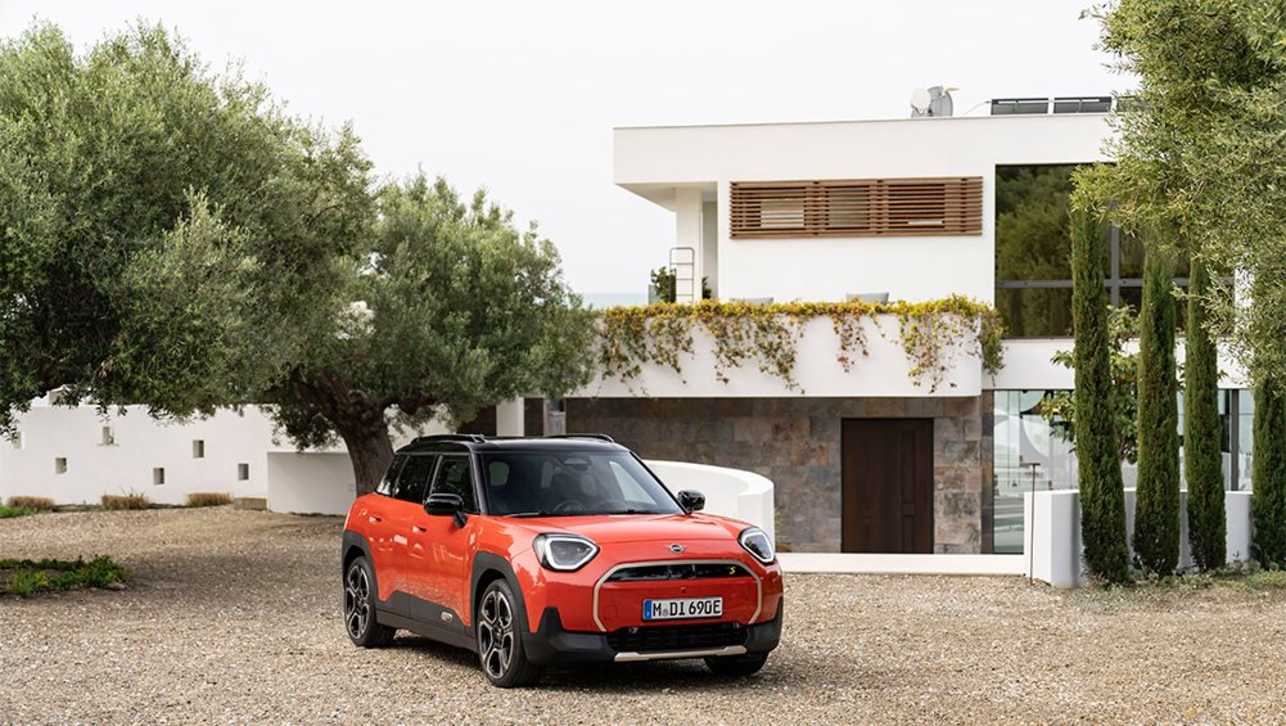Opel has confirmed that it is considering selling vehicles in Australia again sometime in the future, but not in the traditional sense, and likely with electric vehicles (EVs) only.
While no concrete plans are in place, a raft of important new electrified models coming out from next year – starting with the Kia Seltos-sized Crossland II and the Toyota RAV4-rivalling Grandland II – means that Opel is now looking ahead at what other opportunities exist to expand its presence globally.
“We are now getting better in Europe, and now we have to see what happens (next),” according to Opel Automobile GmbH Group Manager for Internal and Corporate Communications, Roland Korioth.
“It will not come soon, but Australia is on the list.”
Speaking exclusively to CarsGuide at the IAA Mobility Show in Munich this week, he added that Opel’s move to pure electrification by 2028 means that major city centres, rather than a national rollout, is likely for Australia, at least initially.
“In South America, and wherever else we are thinking at the moment with electric, we are looking at where the (EV) infrastructure is, and where we can best sell our electric cars,” Korioth said.
“So, maybe not to jump into a country, but we start with some cities first. And the same thing could happen – but this is just theory at the moment – with Australia, because it is such a huge country.
.jpg)
“We would say, let’s see how it’s going in Melbourne and Sydney and so forth.”
Encouraged by the European success of the Corsa supermini and Mokka light SUV, Opel is already in New Zealand with these models and others, sold in both internal combustion engine and EV guises.
“Sometimes it starts with small things,” Korioth said. “For instance, last year, we started in the New Zealand market.”
So, which Opels would likely be under consideration for Australia?
Korioth would not say. But key models may include the aforementioned next-gen Crossland and Grandland EV, whose designs are said to draw inspiration from the Opel Experimental Concept shown at this week’s Munich motor show, while some reports also suggest the latter points to a Tesla Model Y-chasing coupe-SUV that could wear the historic ‘Manta’ name.
.jpg)
The recently-released EV version of the latest, striking Astra – whose distant predecessors wore Holden badges from 1996 to 2009 and again from 2015 to 2020 – as well as the coming third-gen Mokka could also be in contention.
Another unknown would be distribution.
Potential candidates, including Australian Peugeot/Citroen importers Inchcape as well as the Ateco Group – two companies that have enjoyed success as multi-brand franchises – have both declined to comment on any moves to bring Opel back to this market. In NZ, Opel is distributed by the Armstrong Group.
Furthermore, Korioth emphasised that meeting strong demand in Europe right now is Opel’s priority, so any Australian return may take some time.
.jpg)
“We have to be smart with our rollout strategy of course,” he explained.
“And to be honest, with the bigger markets, we are a little bit careful at the moment, so we are calculating: ‘Does this market really make sense for us?’, but of course, Australia is on the list. Like many others.”
With the EV version proving especially popular, demand for the Toyota Yaris-sized Corsa has exceeded expectations, achieving the number one small-car spot for two years in a row in Germany. It even dethroned 50 consecutive years of Ford models at the top of the UK sales charts in 2021 (wearing Opel’s Vauxhall sister brand).
Plus, across Europe in the first half of this year, Corsa was in the number-five spot at 105,637 units, up 19 per cent year-on-year, and just 62 registrations behind the fourth-place Peugeot 208 on which it is based on.
.jpg)
That said, this newfound popularity is also disrupting the 161-year-old marque’s international expansion plans, as Opel scrambles to overcome the same supply issues as most other carmakers since the COVID-19 pandemic.
“We are, at the moment, concentrating on Europe, because we still have a lot of order intakes and cars are not delivered to customers yet,” Korioth said.
“As you’ve already seen the last couple of years, we’ve had problems with chips and supply chain (issues), so we have to go step-by-step with our international strategy.
“So, we’ll do this first, and then we’ll check with markets that make sense for us.”
.jpg)
Opel, of course, is not the same carmaker that returned to Australia for 12 months from mid-2012.
Against a very different backdrop under General Motors ownership of Opel (from 1929 to 2017), Holden was forced to sell the Corsa, Astra small car, Insignia midsized sedan and (a handful of) the Zafira people mover.
In fact, during the GM years, Opel failed twice in Australia, since the Insignia B-based ZB Commodore was the final nail in Holden’s coffin after its dismal sales performance following the closure of full-line vehicle manufacturing in October, 2017.
Today’s Opel, however, is a very different proposition.
.jpg)
After decades of devastating losses under GM, Opel has blossomed in Europe, first under the PSA Group (Peugeot/Citroen) control, before the brands merged with Fiat Chrysler Automobiles under Stellantis in 2021.
For the first six months of this year, combined Opel/Vauxhall sales in Europe jumped six per cent, to just under 241,000 units. While this puts the ex-GM brands in 13th spot, it’s still ahead of Fiat, Citroen, Tesla, Nissan, MG and Mazda.
Do you think Australians will resonate with EVs wearing familiar and even nostalgic model names like Astra? Let us know in the comments below.



.jpg)

.jpg)

.jpg)
.jpg)

.jpg)
.jpg)
_0.jpg)

-1001x565-1.jpg)

.jpg)
.jpg)
.jpg)
.jpg)
.jpg)

.jpg)







Comments